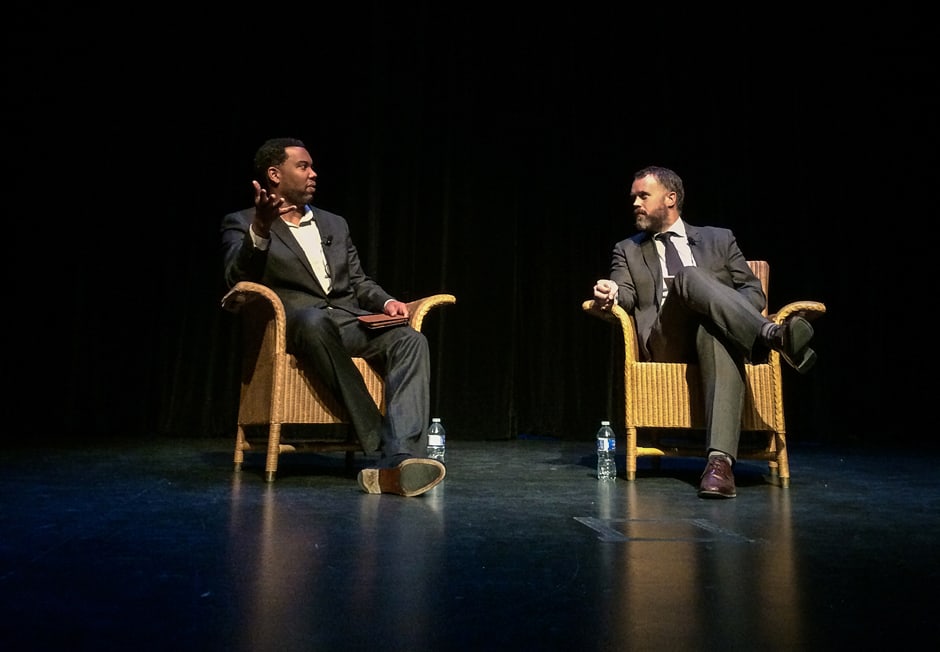From November 3 to 12, the University of Toronto Students’ Union (UTSU) and the Arts and Science Students’ Union (ASSU) are hosting the annual eXpression Against Oppression (XAO), a series of events aimed at tackling social justice issues at U of T and bringing them to the forefront of student attention.
This year, XAO programming included a screening of the film Polytechnique, an open-mic night, and self-defense workshops.
New to the programming this year was an inclusive dance event, organized in partnership with LGBT Salsa and held at the newly opened Goldring Centre for High Performance Sport.
“I originally noticed this campus group during Queer Orientation, however they did not get the attention they deserved due to multiple programming on the same day,” said Najiba Ali Sardar, UTSU vice-president, equity.
Combatting oppression
According to Ali Sardar, XAO allows students to learn about oppression, which is an issue she says is often left out of academic curricula.
“XAO forces us to think about the realities of our campus, to open our minds, and to find ways to combat the various forms of oppression we, as well as our peers, face,” Ali Sardar added.
Alycia Hawkes, an upper-year equity studies student, said events like XAO are a good start in creating an equitable campus environment, but asked that there is still more work to be done.
“I love the fact that students are drawing attention to the important issue of oppression on and off campus. Beginning the discussion is a huge first step, and I am proud to be part of a student body that takes initiative to work towards a more equitable campus life,” Hawkes said., adding, “That being said, we need to remember to not limit the spirit of the event to one week of activities on campus. The university needs to take an active role in working to solve the issues addressed by students year-round.”
Ta-Nehisi Coates
A highlight of the week was the keynote address given by American journalist Ta-Nehisi Coates in an event jointly hosted by the ASSU, the Munk School of Global Affairs, the Faculty of Arts & Science, the UTSU, and the history department.
Coates, a national correspondent for The Atlantic, writes about culture, politics, and social issues.
The topic of his lecture was to argue that African Americans have been subjected to systemic racism and economic exploitation up to the present day, and that the American government should be prepared to pay reparations.
Coates’ groundbreaking article, “The Case for Reparations,” was published in June 2014.
In both the article and his lecture at U of T, Coates argued that racism towards African Americans involved economic exploitation that enriched other groups in American society, and was not simply a matter of prejudice.
“White supremacy is not merely the work of hotheaded demagogues, or a matter of false consciousness, but a force so fundamental to America that it is difficult to imagine the country without it,” Coates wrote in the article.
The lecture was held in an effort to “cause our students and the community to engage critically and discuss issues pertinent to our society and the world,” said ASSU president Abdullah Shihipar, continuing, “We wanted to bring a big speaker who would spark such a conversation, and we thought Ta-Nehisi Coates was perfect for this.”
“Canada is not immune from dealing with issues of privilege and the marginalization of certain groups. Hearing about the context in the United States may help us learn about how to deal with such issues in Canada,” he added.
Coates’ work explores the history of racism towards African Americans, covering widely known topics like slavery and Jim Crow, and lesser-known topics like discrimination against black homeowners in mid-twentieth-century Chicago.
He wrote that, even into the twenty-first century, “the notion that black lives, black bodies, and black wealth were rightful targets remained deeply rooted in the broader society.”
Neither the article nor the lecture made specific claims as to how the payment of reparations would occur.
Rather, Coates is a vocal supporter of H.R. 40, a bill introduced in the House of Representatives in January 2013 that would establish “the Commission to Study Reparation Proposals for African Americans to examine slavery and discrimination in the colonies and the United States from 1619 to the present and recommend appropriate remedies.”
Correction: An earlier version of this article stated that this year’s XAO was the fifth annual. In fact, XAO has run annually since at least 2000.


